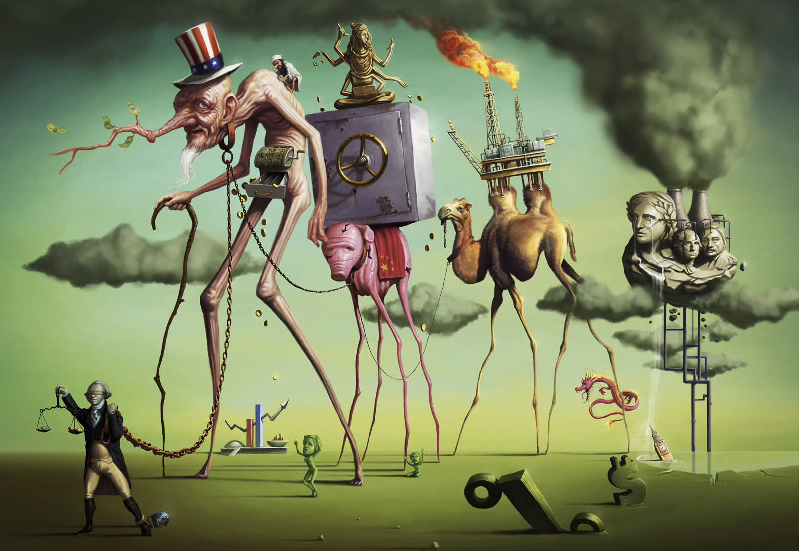Amid the ongoing global inflation crisis, NATO heads of state and mainstream media repeat a mantra that high energy prices are a direct result of Putin’s actions in Ukraine since end of February. The reality is that it is the western sanctions that are responsible. Those sanctions including cutting SWIFT interbank access for key Russian banks and some of the most severe sanctions ever imposed, are hardly having an impact on the military actions in Ukraine.
What many overlook is the fact that they are increasingly impacting the economies of the West, especially the EU and USA. A closer look at the state of the global supply of diesel fuel is alarming. But Western sanctions planners at the US Treasury and the EU know fully well what they are doing. And it bodes ill for the world economy.
While most of us rarely think about diesel fuel as anything other than a pollutant, in fact it is essential to the entire world economy in a way few energy sources are. The director general of Fuels Europe, part of the European Petroleum Refiners Association, stated recently, “… there is a clear link between diesel and GDP, because almost everything that goes into and out of a factory goes using diesel.”
At the end of the first week of Russia’s military action in Ukraine, with no sanctions yet specific to Russia’s diesel fuel exports, the European diesel price was already at athirty-year high. It had nothing to do with war. It had to do with the draconian global covid lockdowns since March 2020 and the simultaneous dis-investment by Wall Street and global financial firms in oil and gas companies, so-called Green Agenda or ESG. Almost on day one of Russian troop actions in Ukraine, two of the world’s largest oil companies, BP and Shell, both British, stopped deliveries of diesel fuel to Germany claiming fear of supply shortages. Russia supplied some 60 to 70% of all EU diesel before the Ukraine war.
In 2020 Russia was the world’s second largest exporter of diesel fuel behind USA, shipping more than 1 million barrels daily. Most of it, some 70%, went to the EU and Turkey. France was the largest importer, followed by Germany and UK. In France some 76% of all road vehicles—cars, trucks—use diesel.The EU diesel demand is far higher than in the US as most cars also use the more economical and efficient diesel fuel. In the first week of April the EU Commission President Ursula von der Leyen proudly announced new sanctions against Russian energy that would begin with a ban on coal. The EU is the largest importer of Russian coal. Oil and gas she said would follow at a later date. That foolish move will merely boost costs of energy, already at record high, for most of the EU, as it will force oil and gas prices far higher.
At the beginning of the Ukraine crisis global stocks of diesel fuel were already the lowest since 2008 as the covid lockdowns had done major damage to the demand-supply situation of oil and gas production. Now the stage is set for an unprecedented crisis in diesel. The consequences will be staggering for the world economy.
Continued here:
https://www.globalresearch.ca/nato-sanctions-coming-global-diesel-fuel-disaster/5777305

Recent Comments